Wild Bastards is a roguelike FPS that makes some shocking changes over its predecessor, but its posse of planet plundering robots eventually won me over
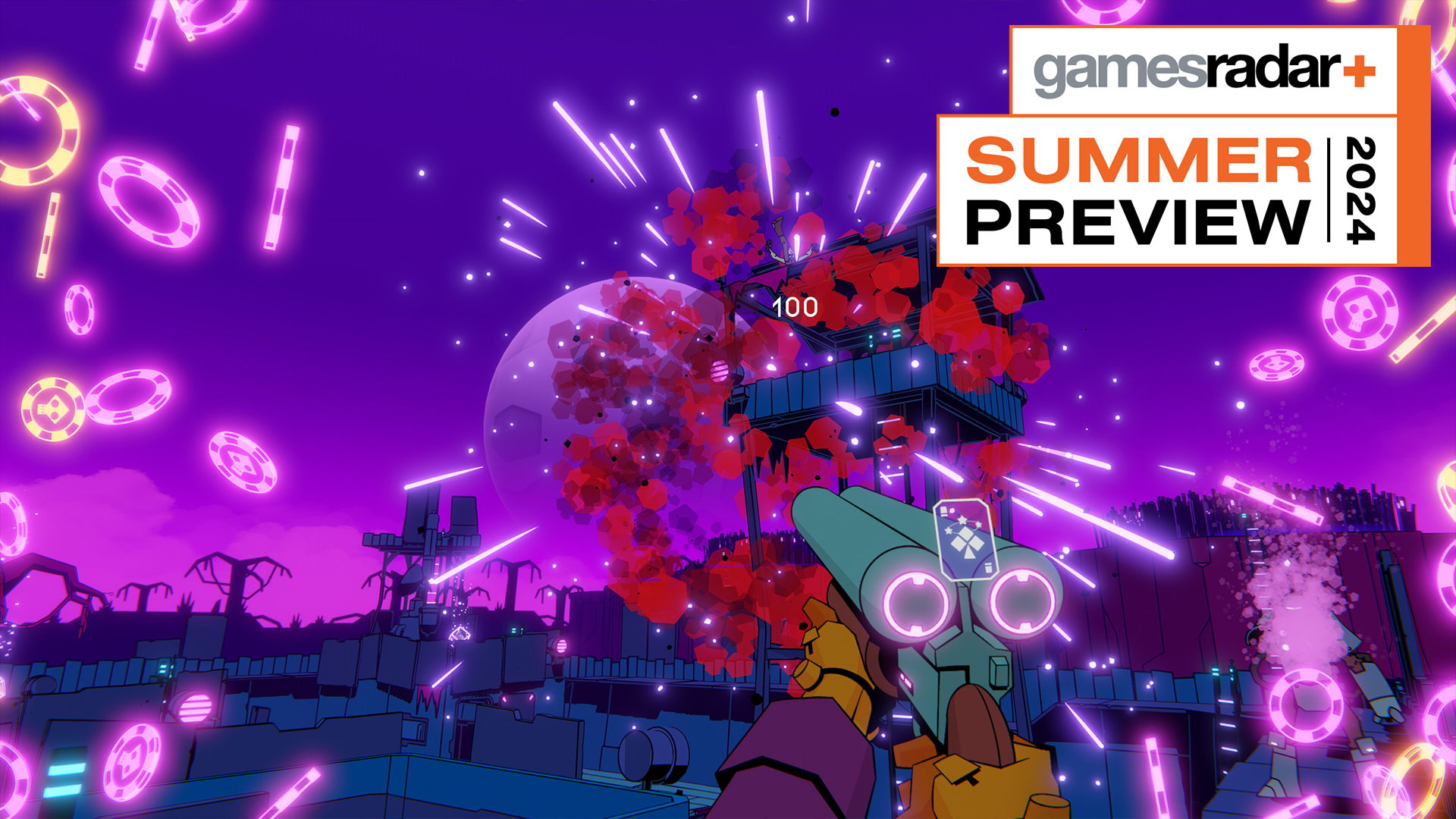
Wild Bastards isn't quite the game I expected. This rogue-like FPS by Blue Manchu is notionally a follow-up to 2019's Void Bastards, but it differs from the studio's comic sci-fi shooter in some fundamental ways. Where Void Bastards was a System Shock-style shooter that featured boardgame-like space exploration, Wild Bastards is a planet-plundering boardgame that features arena-style gunslinging.
It's a significant change of emphasis, and at first, I hated it. Not only did Wild Bastards seem to take away the thing I liked most about Void Bastards – exploring derelict spaceships filled with weird enemies and chaotic potential – it didn't seem to replace it with much at all. But this proved a premature reaction. Wild Bastards' change of emphasis reflects new ideas it wants to pursue, and while I'm still sceptical about some of these, there are others that I'm very excited by.
Summer Games Preview
We are diving deep into the hottest upcoming games out of Summer Game Fest. To find all of our coverage, visit GamesRadar's What's Hot 2024 hub.
Interstellar bandits
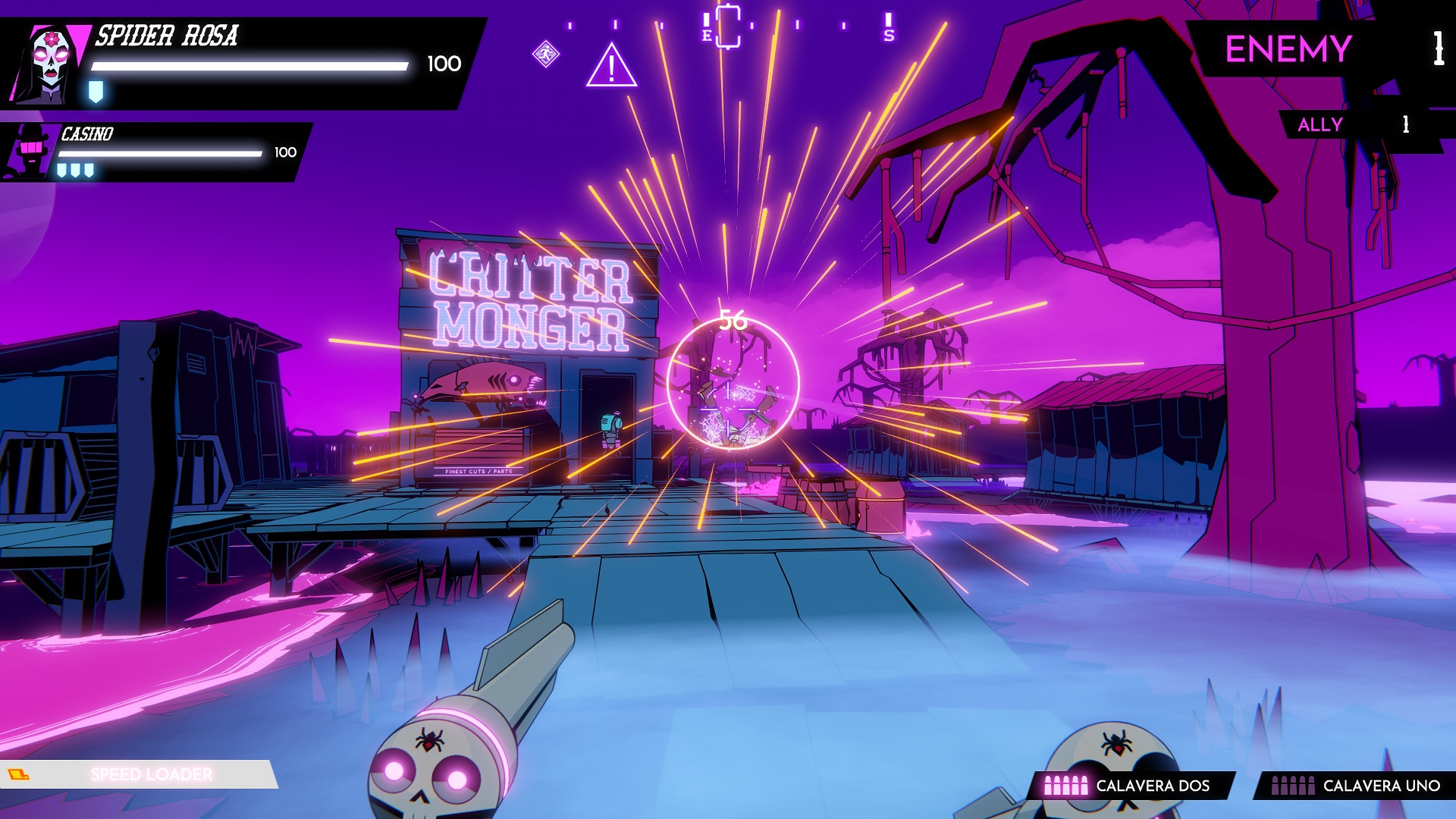
Wild Bastards sees you guiding a posse of interstellar bandits through different sectors of space, as they flee from a hostile organization known as The Chaste. Think FTL, only each sector of space has multiple planets you can beam down to and scavenge for resources. Landing on a planet triggers a turn-based, isometric planetary map that you can move your posse around, buying, collecting, or outright stealing as many useful gizmos as you can.
Ideally, you want to sweep the planet clean and abscond before a swivel-eyed Chaste deputy known as McNeil turns up to hunt you down. But the maps are dotted with 'roadblocks' set up by Chaste henchmen you'll need to fight through. During one of these 'Showdowns', Wild Bastards switches to a first-person perspective, tasking you with eliminating a random assortment of enemies on a Western-themed map.
This is the part of the game that I initially recoiled from like a branding iron. Void Bastards was far from an exceptional shooter, but there was much more to its first-person play than fighting. You had to plan each spacecraft excursion carefully, then execute it rapidly, interfacing with the ships' various systems, using evasion and traps to get the drop on enemies, and escape before your oxygen ran out. Playing each ship was like downing a shot of System Shock, a condensed and intoxicating blend of that game's ideas.
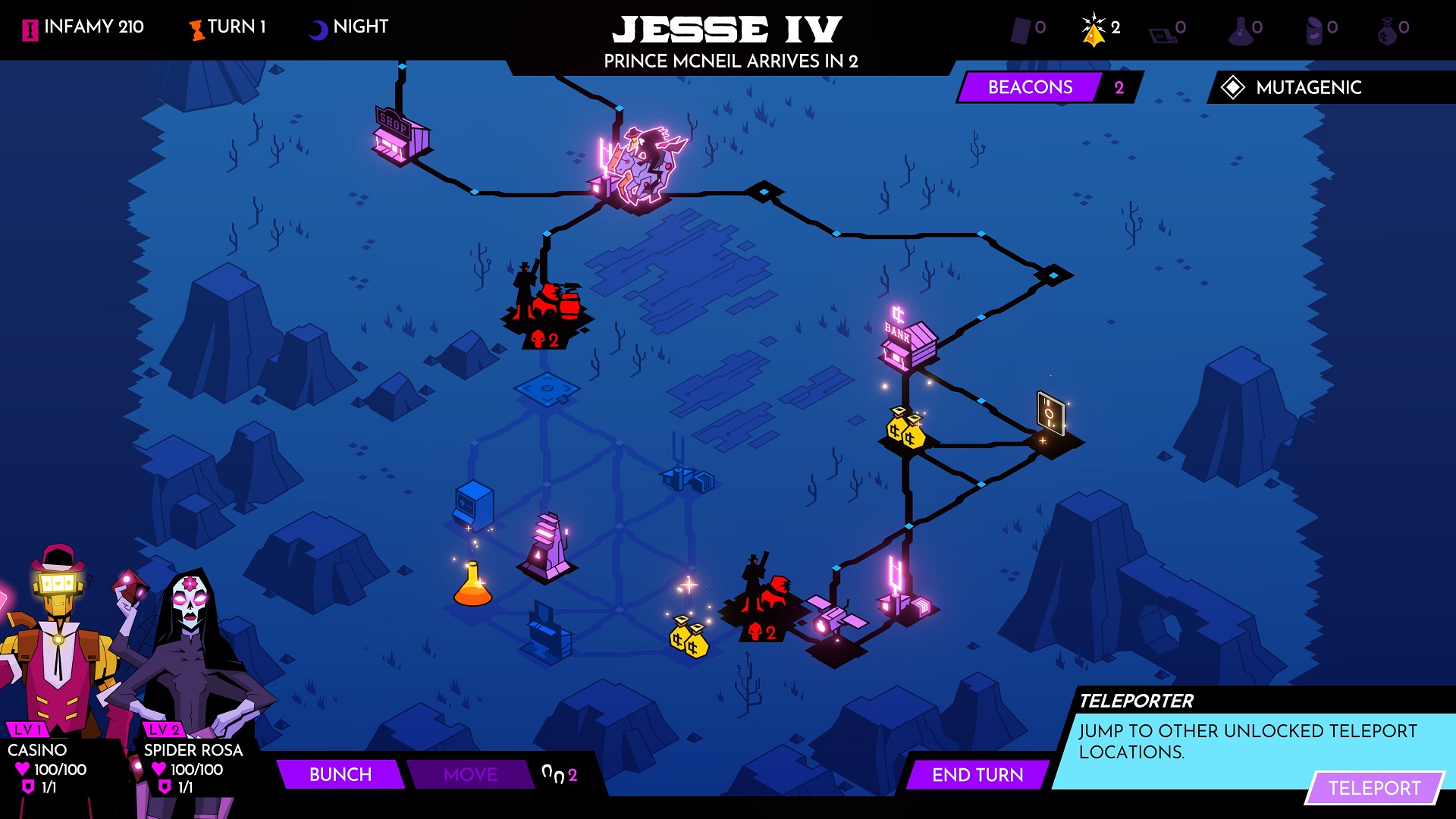
By comparison, the first-person play of Wild Bastards is purely combat focused, with you clearing arenas of enemies in rounds that last between thirty seconds and two minutes. But the gunplay doesn't seem vastly improved over Void Bastards, so I felt the absence of the exploration element like a cactus suppository.
Fortunately, Wild Bastards has a couple of aces up its sleeve. The strategic planet maps quickly expand in size and complexity, adding multiple routes from which you can attack your objective, and a wide range of secondary locations that provide strategic bonuses. For example, some planets feature teleporters that will zap you to another part of the board, while others include modifiers you can bring into showdowns to gain an advantage, like AI allies or ability enhancing tonics. Moving around the board in the right way can have a huge impact on your prospects both inside and outside combat, while wasting moving might see you forced to abandon valuable loot, or worse, find yourself stuck in a gunfight with McNeil.
Sign up to the GamesRadar+ Newsletter
Weekly digests, tales from the communities you love, and more
Teamwork
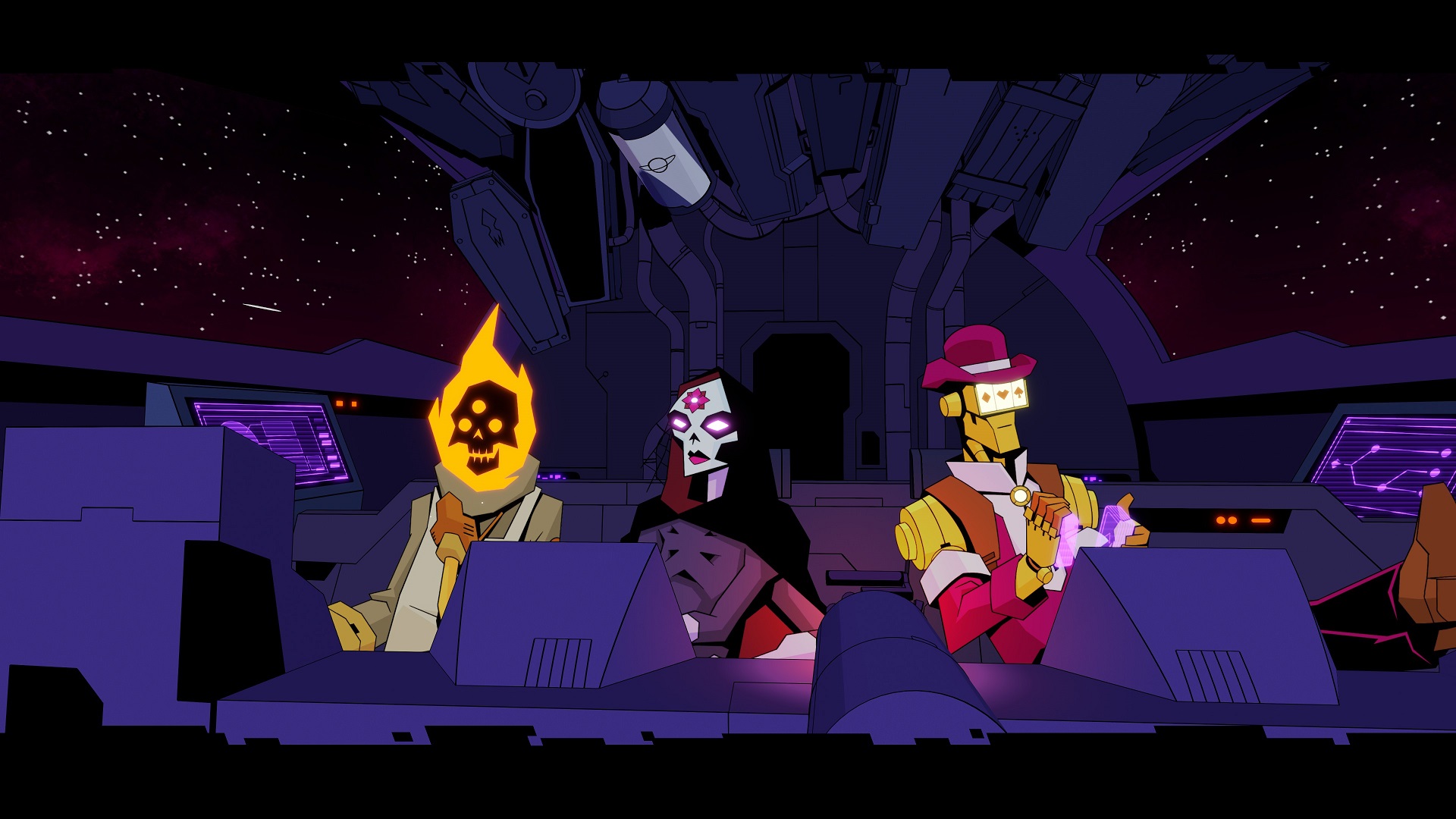
The other key twist is your own posse. Whereas Void Bastards had you play as randomized characters that were rerolled when you died, Wild Bastards features 13 bespoke party members you can switch between once unlocked. By 'unlocked' I mean 'revived'. All but two of them start off the game dead, and resurrecting them requires you to nab a special resource from planets.
It's important to do this, because each character brings new weapons and abilities to the battlefield. Spider Rosa is an arachnid gunslinger who wields twin pistols and can deploy enemy-distracting decoys. Doc Casino, meanwhile, is a walking slot machine who blasts foes with a shotgun and can roll a deadly jackpot to kill random enemies outright. Combined with an enemy roster that adds poison spitting snakes and gun-turrets disguised as whiskey barrels to the standard selection of robotic cowboys, combat quickly escalates in both novelty and challenge. Since characters maintain damage across encounters, a single bad combat round can dramatically impact your chances of escaping a planet in one piece.
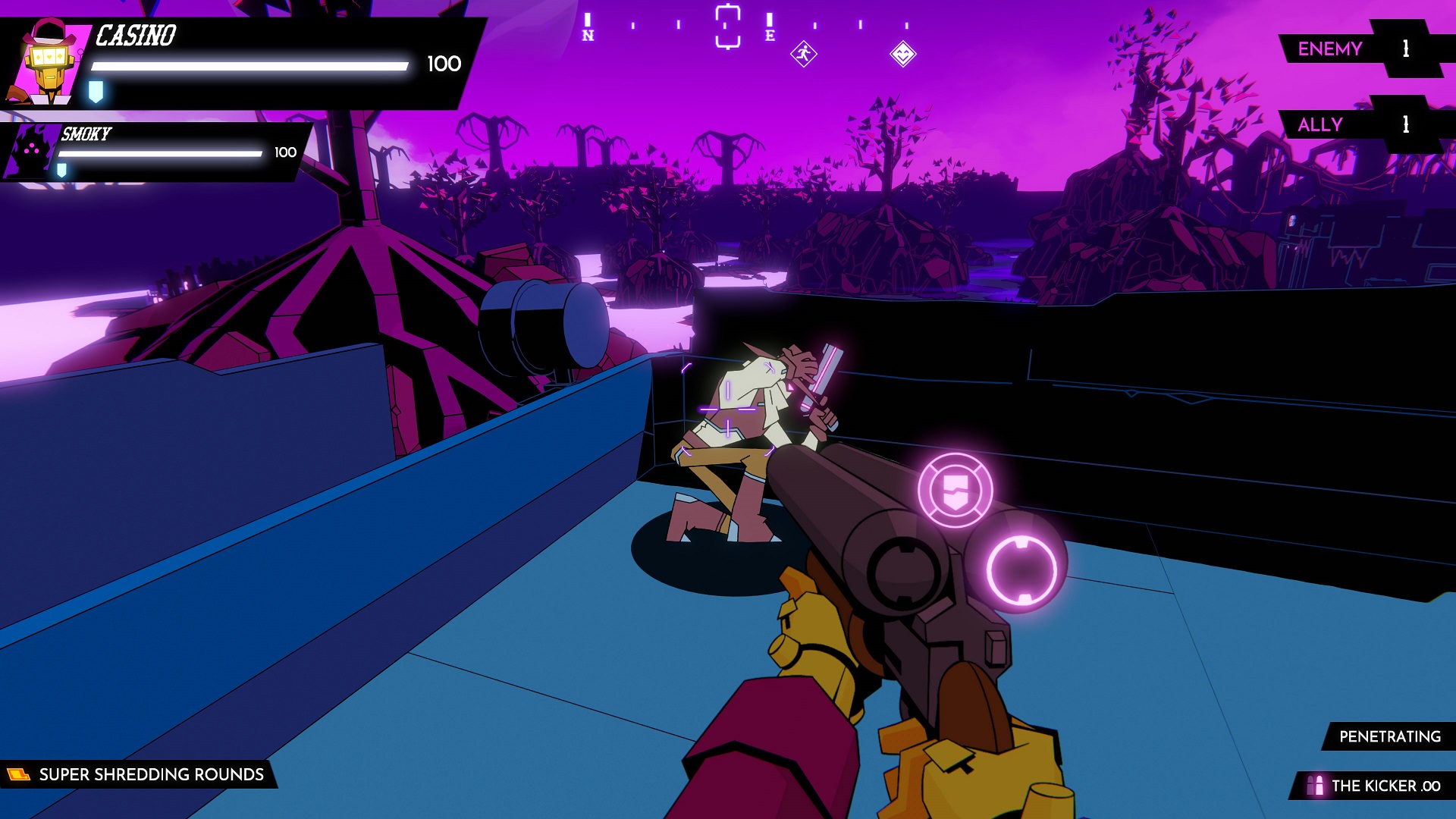
Teamwork plays an important role both on and off the battlefield.
There are also a couple of other interesting ideas that emerge as you play. Teamwork plays an important role both on and off the battlefield. You can deploy several characters to a planet at once, and if the number a planet allows is greater than 2, they're split into multiple groups, letting you send them in different directions on the board. During combat, you only fight as one character at a time, but you can switch between them at any point, much like swapping a weapon in a standard FPS. Moreover, the teammate in reserve will still help you out by calling out when an enemy is behind you or to one of your flanks. Not only does this add to the sense of camaraderie among your posse, it's also genuinely useful, and was possibly my favorite mechanical flourish of the entire demo.
The final point worth noting is the narrative potential of your posse. Initially, I found the game's heavy pastiche of Wild West lingo a little grating (Doc Casino in particular talks like ChatGPT for cowboy similes). But as more characters unlock, the game's voice becomes more diverse, and internal conflicts begin to emerge that counterbalance the game's irreverent humor. At the end of the demo, you unlock a character named 'Judge' who has a standing feud with Casino and refuses to deploy onto any planet with the robotic card sharp. It promises an intriguing blend of scripted and dynamic narrative, and I'm curious to see where this goes.
I'll miss the derelict diving of Void Bastards, and I still question whether Wild Bastards' arena combat can generate enough depth and satisfaction to stand on its own. That said, the more involved strategic layer helps to compensate for the lighter first-person sections, and I've only seen three of its purported 13 characters in action, let alone how they can be modified and upgraded. If the game can continue to elaborate on its ideas at the rate of the demo, then Wild Bastards could yet lasso me into its way of thinking.
Here are the 15 games we really want to see at Summer Game Fest.
Rick is the Games Editor on Custom PC. He is also a freelance games journalist whose words have appeared on Eurogamer, PC Gamer, The Guardian, RPS, Kotaku, Trusted Reviews, PC Gamer, GamesRadar, Rock, Paper, Shotgun, and more.



